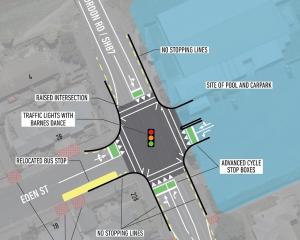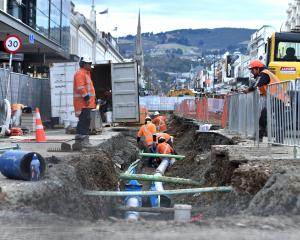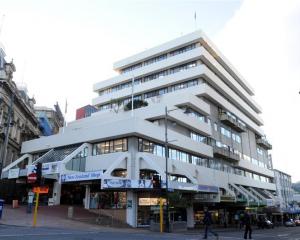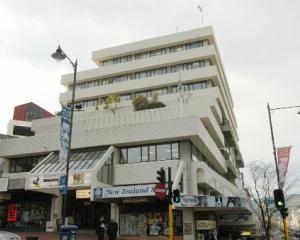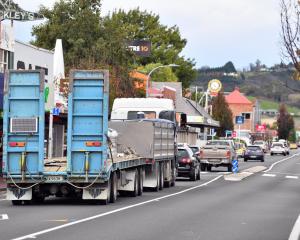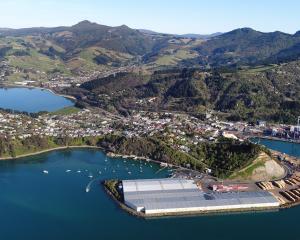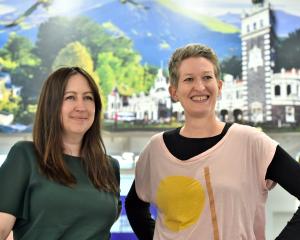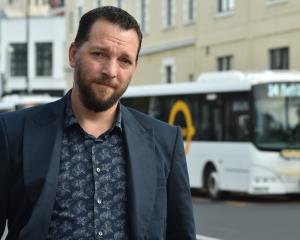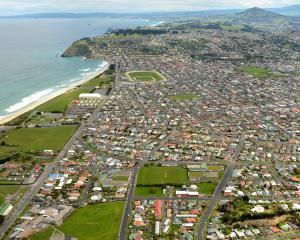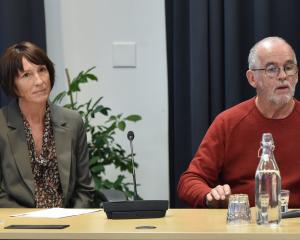Dunedin's nine mayoral aspirants did their best to court the tourism sector at their first mayoral candidates forum in the city last night.
The relatively polite meeting on the theme of what candidates would do, if elected mayor, for the tourism sector, was held at Forsyth Barr stadium and hosted by tourism operator organisation Dunedin Host.
It is the first of several public mayoral forums, including the Otago Daily Times/Otago Chamber of Commerce Dunedin mayoral debate on September 9.
Candidates were given a moment to introduce themselves and say what they stood for, before pre-selected questions were taken from the audience of about 40 people, mainly from the tourism industry.
Hilary Calvert began her contribution by saying she wanted to clear the council books and make people accountable for every financial decision.
Kevin Dwyer said he had been having issues getting information from the Dunedin police on a personal matter, before Cr Lee Vandervis said he would merge the Otago Regional Council and Dunedin City Council and have a less convoluted, more efficient, streamlined local government, to help Dunedin ''really thrive''.
Olivier Lequeux said he was an ideas man, who in 17 years in Dunedin had created a dozen businesses.
He had dealt with thousands of tourists and was concerned the buses taking cruise-ship passengers to the Octagon were ''disgusting'' and ''the volunteers are not attractive''. Dunedin could do ''so much better with very simple solutions''.
Pete George said he wanted Dunedin to be a leader in interactive communication, where ''digital democracy'' should be used as much as possible. Tourism marketing was not taking advantage of opportunities quickly enough, he said.
Steve McGregor said heating the St Clair hot pool to 40degC and adding more lights to the city, so Dunedin became the ''City of Lights'', like Auckland was the ''city of sails'', would help Dunedin become one of New Zealand's leading tourist destinations.
The candidates all agreed there was no cohesive, united message on tourism to Dunedin, and that there should be a single organisation for tourism marketing and branding that consolidated all the providers of those things. Candidates were divided on whether it should be a council-controlled company.
Mayor Dave Cull said it needed to be supported by and involve the council, but there had to be financial contributions from the organisations that would benefit. Control of it needed to be spread.
Ms Calvert said the thing that worried her about establishing a council-controlled company, was that at the moment all the council had was ''council-uncontrolled companies'', with nobody in charge of them and she was concerned this would get out of control too.
Mr Dwyer said one person should be running ''the whole thing'', while Cr Vandervis said the council experience with council-controlled companies had been ''utter failure'' and tourism marketing should be in-house, led by the mayor and team to co-ordinate the private businesses.
Mr George would first consult people about what they wanted.
Andrew Whiley said the whole thing needed a bigger budget if the city wanted more return.
Cr Vandervis, Mr Whiley, Aaron Hawkins and Ms Calvert were against a targeted rate for tourism operators because it was difficult to draw the line as to who to target, and Mr Cull said he would only support it if it was clear who would be targeted and what the money would be used for.
On whether ''oil exploration should be based in the city'', Cr Vandervis, Mr George, Mr Whiley, Ms Calvert, Mr Lequeux and Mr Dwyer said yes, while Mr Cull said the question was only around supporting a base in Dunedin, as the exploration decision was a Government decision, and where a base might ultimately be was up to the oil companies.
The question was whether Dunedin would get any royalties from what the companies found off the coast to cover regional risks and costs.
Mr McGregor said it would send the wrong message to tourists, while Green Party candidate Mr Hawkins said Dunedin would get nothing out of it and it would be negligent to gamble with the city's $100 million natural tourism industry for the short-term gains of supporting a base in Dunedin.
Mr Hawkins said to attract and support tourism there needed to be cheaper and more international flights to Dunedin, cheaper and more efficient city-airport links, the i-Site should be moved to the railway station and Dunedin needed to make more of its wildlife and creative aspects.
Mr George said there needed to be a seal, penguin and albatross sculpture built in the Octagon for photo opportunities for tourists.
All candidates agreed small events needed to be supported by the council in some form.


